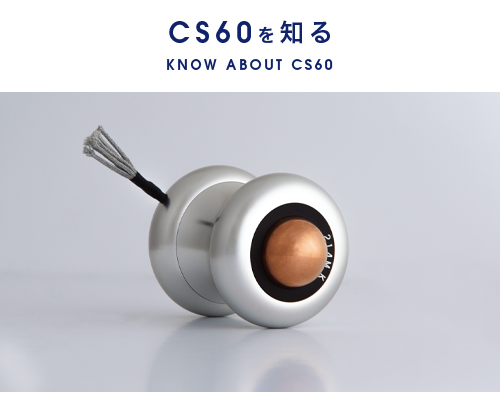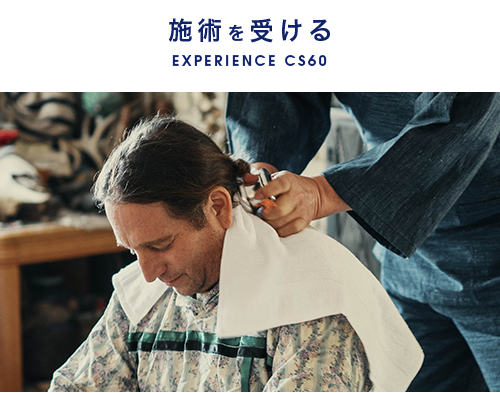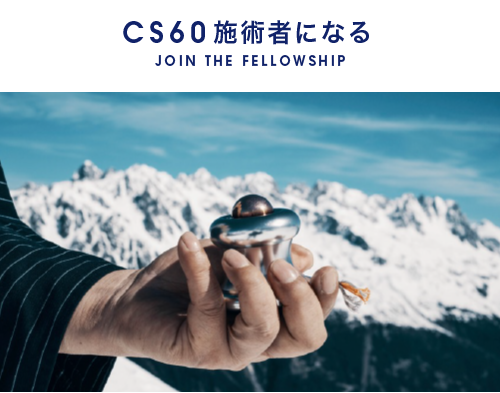
- 2019/07/18
-
Newsletter Vol.15
CS60は必要なとき、必要な人を引き寄せる(のかも知れません)
When the Time Comes for the CS60, So Will the Right Person
Le CS60 attire (peut-être) les gens qui en ont besoin. 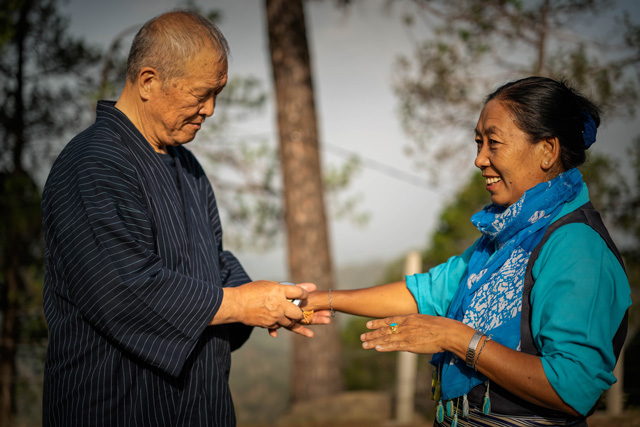
こんにちは、西村です。 5月から、シャモニー、カンヌ、ダラムサラなど海外を飛び回って施術を行っています。 先進国と比べ、近代医療の遅れている国に行き、現状を自分の目で見て、 どういうところで困っているのか聞いて、CS60で貢献できるのかどうかも試してみたい。 海外のことは、日本の報道ではあまり扱わないので、 インターネットやテレビを見ていても本当のところはよくわかりません。 「本当にCS60が世界に通用するのかどうか、現地に行って確かめてみたい」という気持ちが、前からありましたが 知人にも「外国人は痛みに弱いから、CS60は受け入れられない」ということも言われていた事もあり、 二の足を踏んでいたのも」事実です。 ところが、ふとしたきっかけで、海外で施術をする機会を得ました。 そうすると、あっけないほど、CS60が良いものだと分かれば、ほとんどの人が「やってくれ!」と言います。 ひょっとしたら、日本人よりもシンプルで受け入れる寛容さがあるかもしれません。 日本人は奥ゆかしさもあって「治ったような気がする」というように、語尾をあいまいに濁します。 しかし、海外の方々は「良くなった」と言い切ります。 施術が終わってからの表現も豊かで、感動してハグ、キスをしてくれたりします。 素直に喜んでくれるのは施術者冥利に尽きます。 カンヌ映画祭では、ひざを怪我した女優さんに施術したのが印象に残っています。 彼女は目に涙をいっぱいためながら、じっと痛みに耐えていました。 「治る」ということを確信している顔なんです。 その姿は、美しくもあり、怖くもありました。
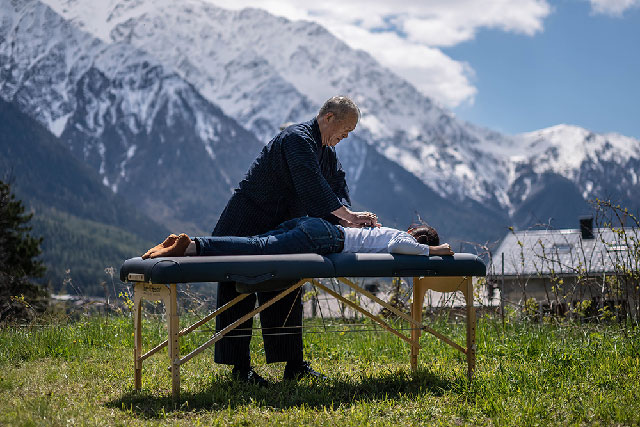
こういう話をすると「そんな世界中の方々にどうして簡単に会えるのですか?」と聞かれます。 ひょっとしたら、CS60には得体の知れない力があるのかも知れません。 「海外に進出したい」というタイミングで、英語が堪能な人が入社してくれたり、 人材を育成したいという時期に、岡本さん(*前回のインタビュー参照)が入ってくれたりしました。 CS60に導かれるように、いろいろな方々とお会いできるので、僕自身も驚いています。 (おわり)
Hi, this is Nishimura.Since May I have been jet setting around overseas, treating people in Chamonix, Cannes, and Dharamshala. I am also hoping to get the chance to visit countries where modern medicine has not advanced as much compared to developed countries. I want to see the situation on the ground for myself, listen to the locals about what areas they are having trouble with, and test out what areas the CS60 will be able to contribute in.
Overseas affairs do not get a lot of coverage in the Japanese media, so just looking online and watching television was not going to be give me a good idea of what is going on.
I had long held a desire to try out the CS60 overseas and see if it could really be something that had application across the whole world. That said, I did have moments of hesitation when people I know told that foreigners would not accept the CS60 because they do not take pain well.
However, by chance, I got the opportunity to do treatments overseas.
Once I did that, I pretty quickly found that most people recognized that the CS60 was a good thing, and would demand treatment. It might even be the case that it is easier to get foreigners to accept the CS60 than it is with Japanese.
Japanese modesty dictates that people will often speak in ambiguous terms, telling you things like, “yes, I feel like it has made me better.” Overseas, however, people just get to the point and say, “I got better.” When I finish treating people overseas, they are effusive about their feelings, and are so overcome that they even hug and kiss me. Having someone express honest joy after a treatment is the greatest reward you can hope for as a healer.
One time that left a particular impression was at the Cannes Film Festival, when I treated an actress who had injured her knee. Her eyes filled with tears as I performed the treatment, but she held on determinedly through the pain. Her face bore a look of conviction that she would be cured. That visage was half beautiful, half terrifying.
When I tell these kinds of stories, people ask “how do you find people like that across the world so easily?”
I suppose the CS60 has some kind of mysterious, hidden power.
Just as I was thinking about expanding overseas, I had people who were good at English join the company. Likewise, just as I wanted to train more people, I had Mr. Okamoto (see the interview in the previous installments) join as well.
The way that I am meeting all kinds of people on my journey, as though I am being led by the CS60, surprises even me.(End)
Bonjour. C’est Nishimura.Depuis le mois de mai, j’ai voyagé à l’étranger, notamment à Chamonix, à Cannes et à Dharamsala, afin de soigner les gens.
Je suis parti dans des pays dont les soins médicaux sont moins avancés que ceux des pays industrialisés. J’ai voulu voir et écouter par moi-même ce qui embêtent les gens sur place et essayer le CS60 pour voir cela peut les aider.
Comme les médias japonais ne parlent que très peu de ce qui se passent en dehors du Japon, on ne connait pas les vérités sur l’étranger même si on regarde les informations sur Internet.
En effet, j’ai voulu depuis longtemps essayer le CS60 à l’étranger pour vérifier qu’il fonctionne vraiment dans le monde entier. Cependant, comme une connaissance m’a dit que le CS60 ne serait pas accepté à l’étranger étant donné que les étrangers ne supportent pas la douleur, j’ai hésité à le faire sortir du Japon.
Pourtant, j’ai par chance obtenu une occasion de travailler avec le CS60 à l’étranger. À étranger, dès que les gens comprennent que le CS60 est quelque chose de bon, la plupart d’entre eux me demandent de les traiter.
Peut-être même que les étrangers sont plus tolérants que les Japonais envers le CS60.Les Japonais étant plutôt réservés, ils utilisent souvent des expressions ambiguës comme « j’ai l’impression que j’ai guéri » alors que les gens à l’étranger disent franchement lorsqu’ils sont guéris.
Ils s’expriment même après les traitements. Étant émus, ils me serrent parfois dans leurs bras et m’embrassent.
Ils expriment ainsi leur plaisir plus directement : c’est le plus grand honneur pour un praticien.Au festival de Cannes, une actrice qui s’est blessée au genou m’a laissé une impression inoubliable.
En ayant les yeux pleins de larmes, elle a sans broncher enduré à la douleur.
Elle a eu l’air d’être convaincue de sa guérison.
Elle était à la fois belle et effrayante.Quand je parle de ce genre d’histoire, on me demande souvent pourquoi je peux rencontrer facilement les personnes dans le monde entier.
Peut-être que le CS60 a une capacité mystérieuse.
Effectivement, quand j’ai souhaité partir à l’étranger, une personne qui parle couramment l’anglais a intégré l’entreprise et quand j’ai voulu former du personnel, Monsieur Okamoto nous a rejoint.J’ai pu rencontrer différentes personnes comme si le CS60 m’avait guidé. J’en suis étonné moi-même.
(fin)
INDEX

